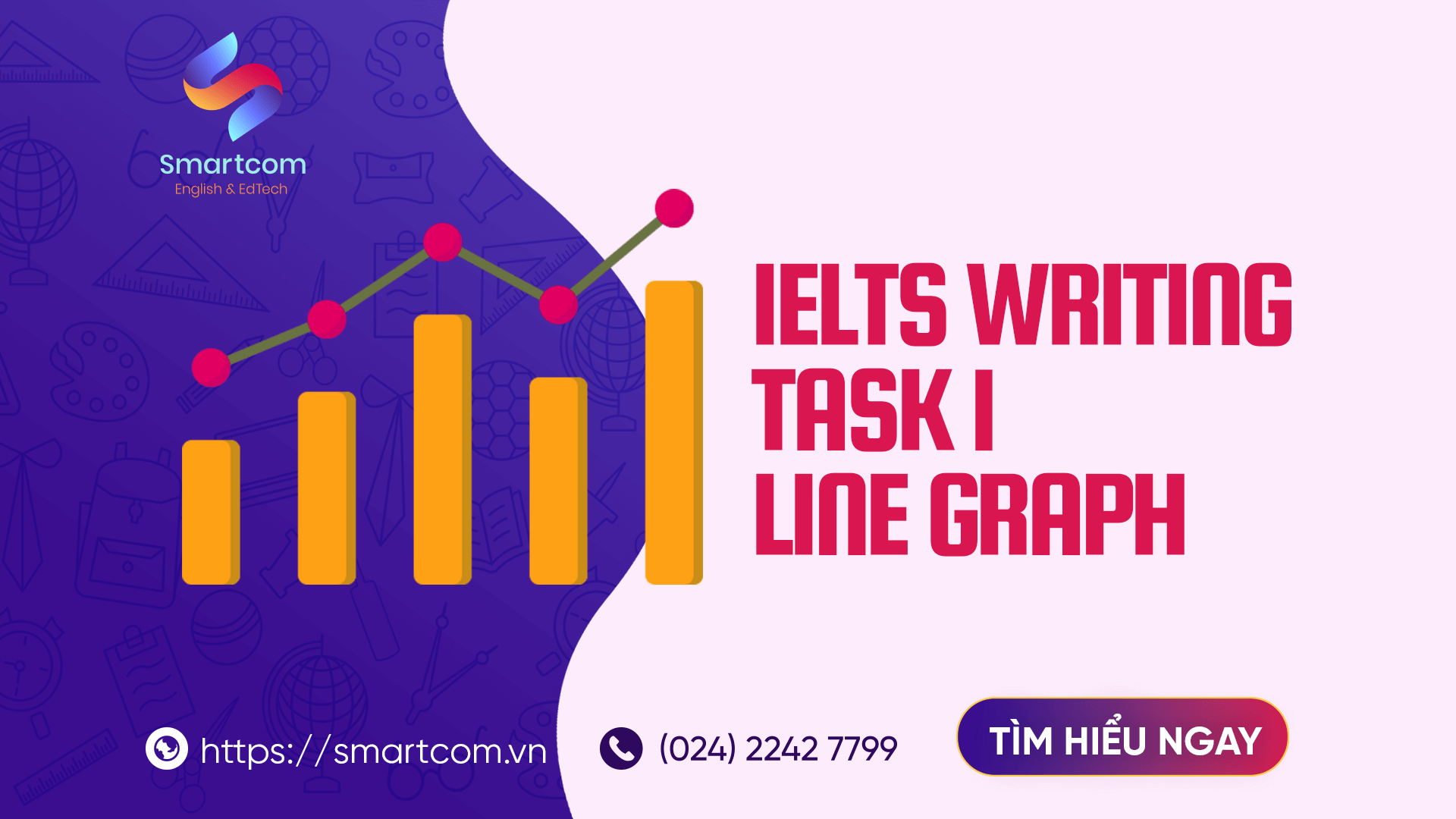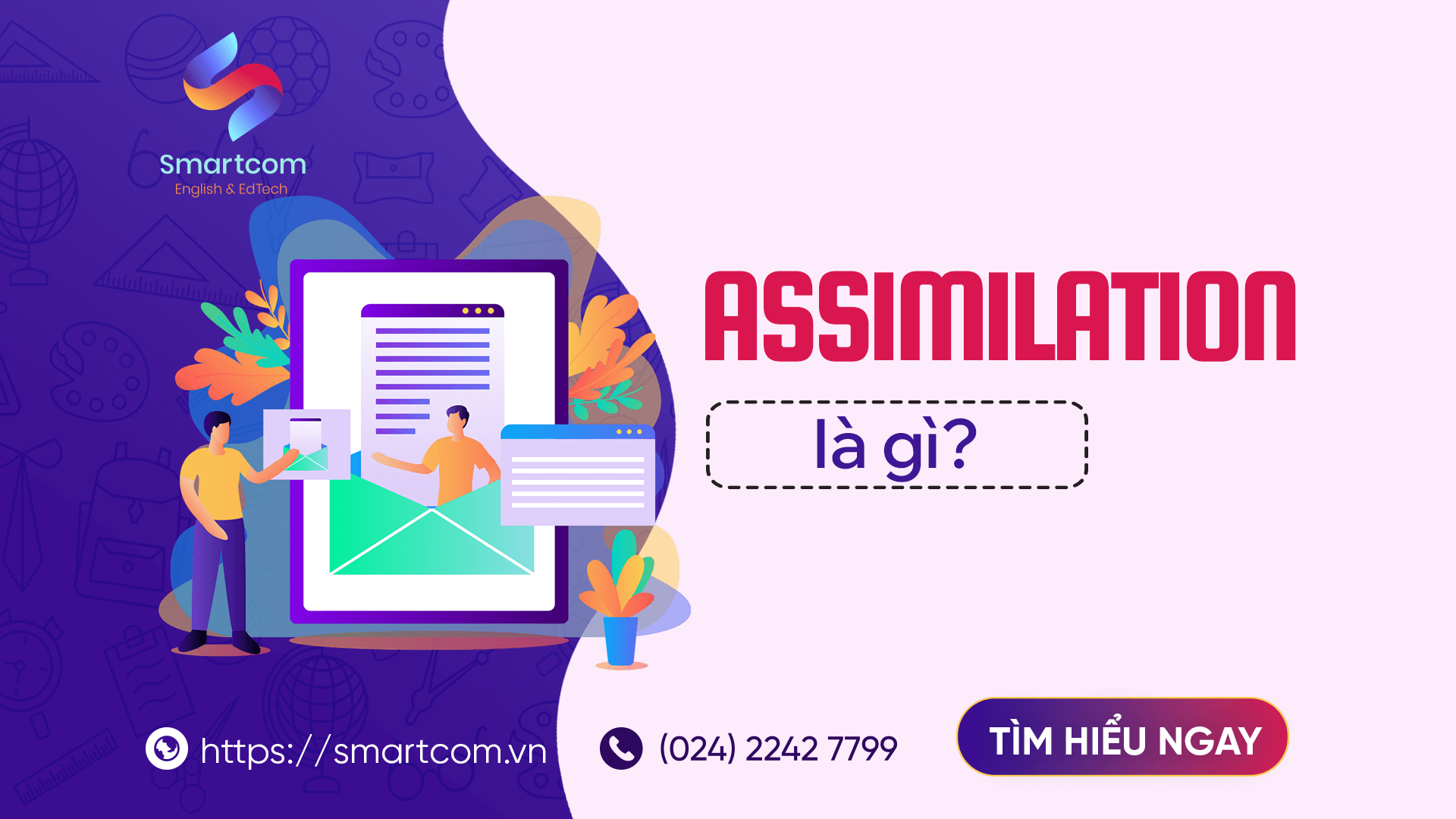Đội ngũ chuyên gia tại Smartcom English là tập hợp những chuyên gia đầu ngành trong lĩnh vực IELTS nói riêng và tiếng Anh nói chung. Với phương pháp giảng dạy sáng tạo, kết hợp với công nghệ AI, chúng tôi mang đến những trải nghiệm học tập độc đáo và hiệu quả. Mục tiêu lớn nhất của Smartcom Team là xây dựng một thế hệ trẻ tự tin, làm chủ ngôn ngữ và sẵn sàng vươn ra thế giới.
Bài thi IELTS Speaking gồm 3 phần, đánh giá toàn diện khả năng nói và trình bày quan điểm bằng tiếng Anh của thí sinh. Trong đó, Part 3 được đánh giá là khó nhất bởi nó mang tính mở rộng, đòi hỏi thí sinh phải đi sâu vào phân tích, thảo luận để đưa ra ý kiến về chủ đề được nhắc đến. Do đó, Part 3 sẽ đóng vai trò quan trọng trong việc quyết định tổng điểm Speaking của bạn. Để làm tốt phần này, hãy cùng Smartcom English tìm hiểu về các câu hỏi IELTS Speaking Part 3 thông qua bài viết bên dưới nhé.

Tổng quan về IELTS Speaking Part 3
Nếu bạn đã từng tìm hiểu về bài thi IELTS nói chung hoặc kỹ năng Speaking nói riêng, bạn sẽ biết rằng bài thi Speaking gồm 3 phần: Part 1, 2 và 3. Part 3 là phần thi cuối cùng của kỹ năng Nói. Đây được coi là phần thảo luận, trao đổi 2 chiều giữa thí sinh và giám khảo chấm thi (a two-way discussion) về các nội dung ở Part 2 nhưng mở rộng hơn. Việc thể hiện tốt trong Part 3 sẽ là cơ hội để bạn “bứt phá” điểm số và gây ấn tượng với giám khảo.

Thời gian thi: 4-5 phút
Số câu hỏi: 4-7 câu
Yêu cầu thí sinh:
- Đưa ra ý kiến, quan điểm của bản thân một cách khái quát.
- Đa dạng hóa từ vựng, cấu trúc câu.
- Trình bày ý tưởng một cách logic, có tổ chức.
- Phát âm chuẩn, có ngữ điệu và thực hiện bài nói trôi chảy.
Tiêu chí chấm điểm:
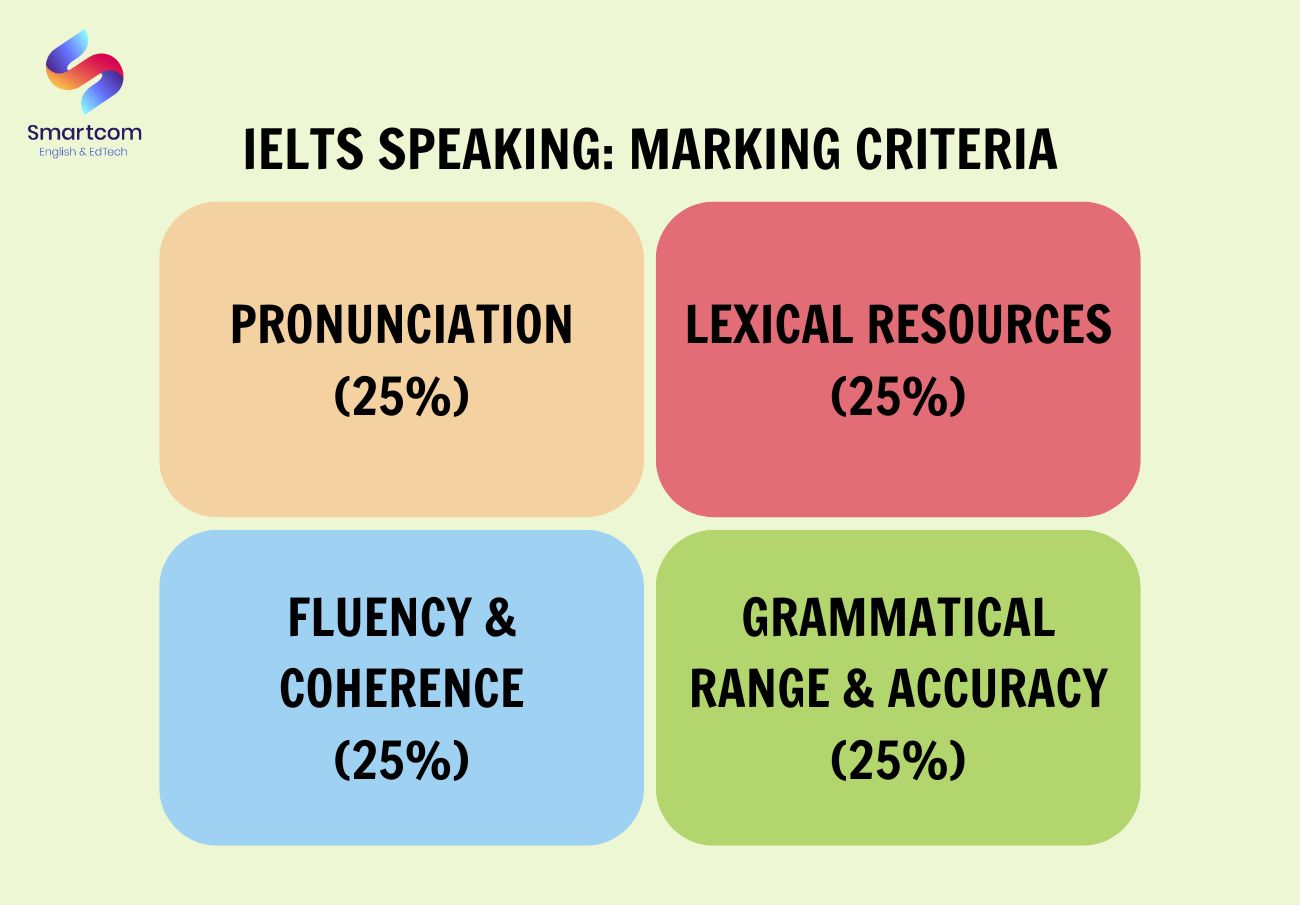
Một số chủ đề liên quan đến Part 2 có thể xuất hiện trong Part 3:
| Câu hỏi IELTS Speaking Part 2 | Dự đoán câu hỏi IELTS Speaking Part 3 |
| A dream house/apartment. | Accommodation, housing, living locations. |
| A teacher that you admire. | Education, training, study, types of schools. |
| A performance that you enjoyed. | Music, instruments, entertainment. |
| A place that you visited recently. | Travel, tourism, popular destinations. |
Lưu ý: Câu hỏi trong Part 3 đã trở nên trừu tượng hơn so với Part 2. Bạn nên chuyển sang chia sẻ quan điểm một cách khách quan và tránh nói về bản thân mình quá nhiều.
Các dạng câu hỏi IELTS Speaking Part 3 phổ biến
Hãy cùng tìm hiểu các dạng câu hỏi trong IELTS Speaking Part 3 thường gặp nhất nhé!
Câu hỏi nêu quan điểm (Opinions)
- In your opinion, is convenience or affordability the most important factor when choosing public transportation? Why do you think so?
- What is your opinion on the use of technology in the classroom?
- Some believe focusing on renewable energy is the key to solving the climate crisis. Do you agree with this approach?
Câu hỏi dự đoán tương lai (Future)
- What do you think will happen to the job market in the future?
- With advancements in technology, how do you think the way we travel will change in the future?
- How will the role of teachers transform with new educational methods?
Câu hỏi so sánh (Compare and contrast)
- How is living in a big city different from living in a small town?
- How does face-to-face communication differ from online communication?
- How do attitudes towards work-life balance in your country compare to those in other cultures?
Câu hỏi đánh giá (Evaluate or assess)
- What are the advantages and disadvantages of using technology in the workplace?
- What are the benefits of promoting gender equality in the workplace?
- How important are cultural activities for community bonds and individual well-being?
Câu hỏi mô tả thay đổi (Change)
- How has the role of women in society changed over time?
- What are the main changes that have taken place in the education system in recent years?
- What are the changes in the entertainment industry with the rise of digital streaming platforms?
Câu hỏi nêu nguyên nhân, ảnh hưởng (Causes and effects)
- What are the causes of climate change?
- What are the effects of poverty on children?
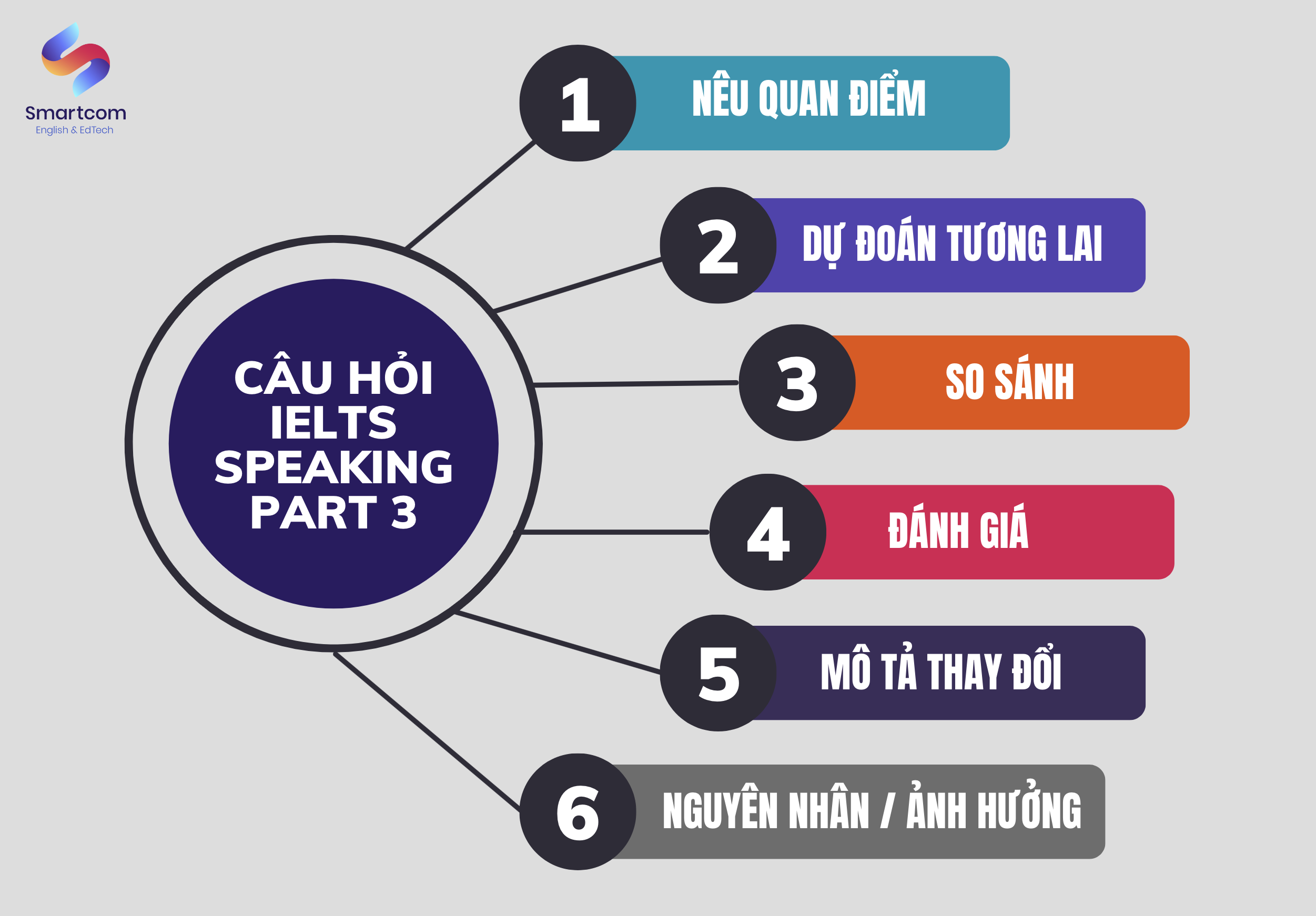
Câu hỏi IELTS Speaking Part 3 chủ đề Education và gợi ý trả lời
Question 1:
Do you think traditional classroom learning will still be relevant in the future with the rise of online learning platforms? Why or why not?
- Sample Answer: Despite the growing number of learning platforms, I strongly believe that traditional classrooms will still be prevalent in the future. Traditional settings offer numerous advantages compared to online ones. For instance, students can join in face-to-face discussions, and group projects or receive in-hand support from the teachers. These are the interactive elements that online learning hasn’t been able to replicate. As a result, they are going to experience a better and more well-rounded learning atmosphere. However, virtual learning can also serve as a useful tool because of its specialized learning material and flexible study hours.
Question 2:
How do you predict the role of teachers will transform as educational methods evolve?
- Sample Answer: It is undeniable that the role of teachers will change due to the involvement of new educational methods. My view is that teachers will shift from being primary sources of information to facilitators or mentors. Since students can get access to knowledge sources easily, teachers’ position will be to guide them on how to utilize and take advantage of those sources properly. Still, they are responsible for guiding students through online sources, planning learning curricula, and providing support and encouragement when needed.
Question 3:
Do you think education ends after graduation or continues as lifelong learning? Why?
- Sample Answer: I think no one would deny that education will continue and evolve into lifelong learning, even after we graduate. Formal education indeed provides people with a strong foundation of understanding and knowledge, but that is not enough compared to the new and constantly updated information. To keep up with changes in the world, lifelong learning is crucial, and we should not cease to stay up-to-date with new advancements, especially in our major field. More than that, we can explore new interests or develop new sets of skills thanks to the continued learning process.

Xem thêm:
IELTS Speaking part 3 topic “Language”: Question & Sample answers
Bỏ túi các cụm từ ăn điểm trong IELTS Speaking
Tổng kết
Trên đây là bài viết về tổng quan IELTS Speaking Part 3, các câu hỏi IELTS Speaking Part 3 và một số câu trả lời tham khảo theo chủ đề. Hi vọng bài viết sẽ cung cấp đủ thông tin cần thiết để giúp các bạn ôn luyện và làm chủ được kỹ năng Nói này. Chúc các bạn ôn luyện thành công và luôn đạt kết quả cao!
THÔNG TIN LIÊN HỆ
SMARTCOM ENGLISH
Địa chỉ: Tầng 4 nhà 29T2, đường Hoàng Đạo Thúy, khu đô thị Trung Hòa Nhân Chính, quận Cầu Giấy, Hà Nội.
Số điện thoại: (+84) 024.22427799
Hotline: 0865.568.696
Email: mail@smartcom.vn
Website: https://smartcom.vn
Kết nối với mình qua
Bài viết khác


![[PDF + Audio] Tải Sách IELTS Cambridge 19 (Kèm đáp án)](https://smartcom.vn/blog/wp-content/uploads/2024/06/ielts-cambridge-19_optimized.png)

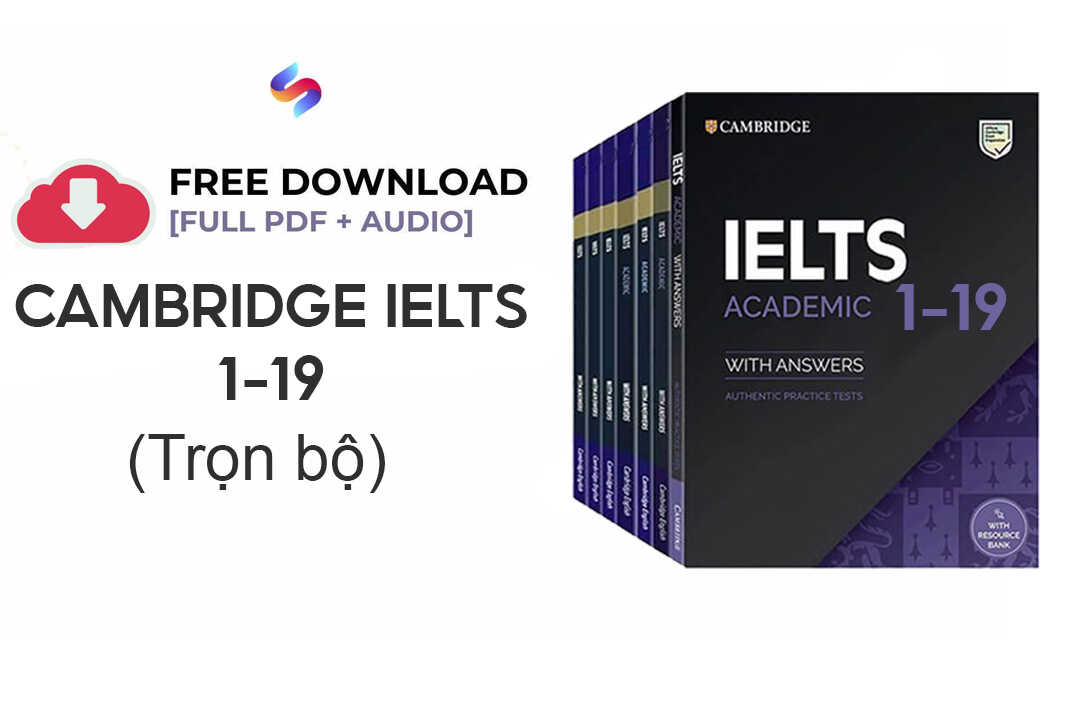
![[PDF + Audio] Tải Sách IELTS Cambridge 17 (Kèm đáp án)](https://smartcom.vn/blog/wp-content/uploads/2024/07/sach-ielts-cambridge-17_optimized.jpg)

![[PDF + Audio] Tải Sách IELTS Cambridge 15 (Kèm đáp án)](https://smartcom.vn/blog/wp-content/uploads/2024/07/ielts-cambridge-15_optimized.jpg)
